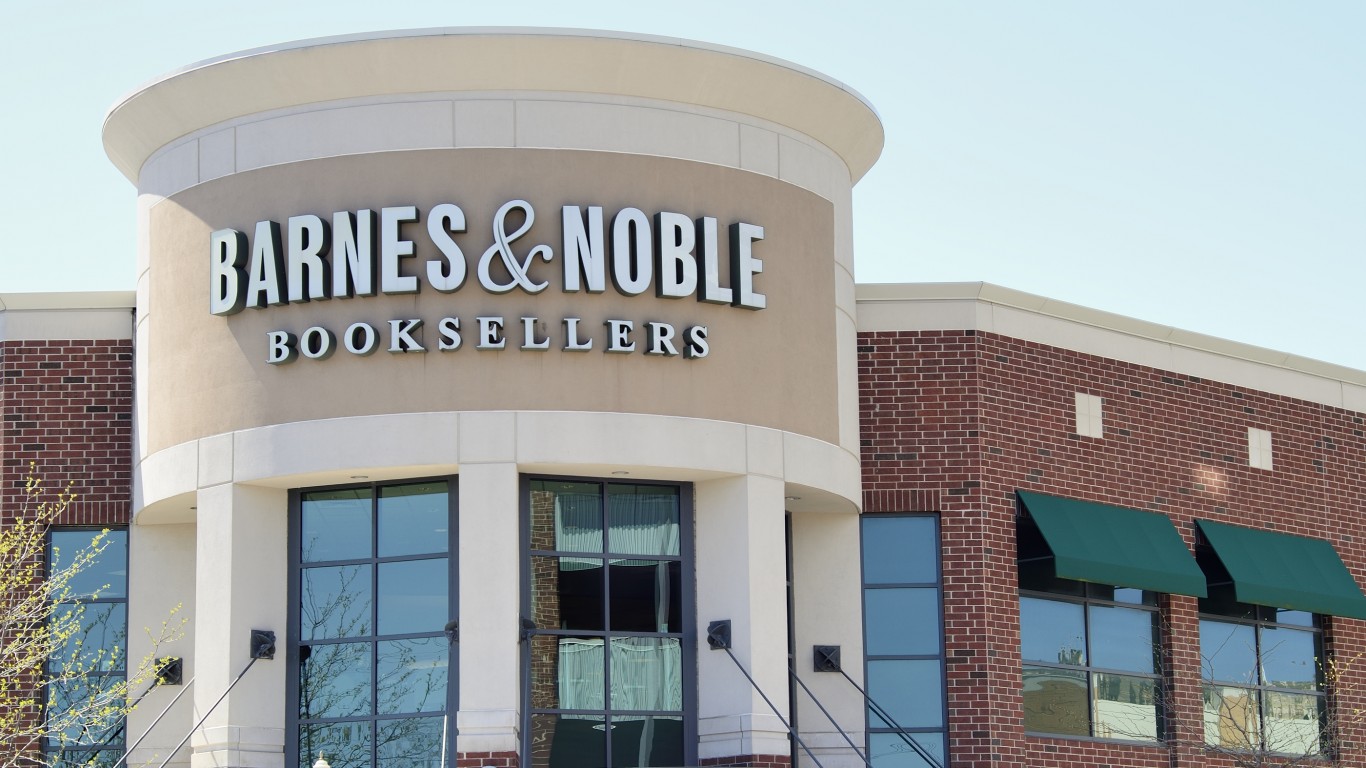Companies and Brands
Can Paul Singer Resuscitate Barnes & Noble?

Published:
Last Updated:

Just three months ago, Barnes & Noble Inc. (NYSE: BKS) took a machete to its earnings guidance for 2019, cutting it from a range of $175 million to $200 million to a new range of $140 million to $155 million. Moreover, that was after B&N said it had a rotten holiday season. Shares dropped nearly 28% for the year to date, and it only got worse. Until Thursday.
That’s when shares jumped nearly 30% following a report that Elliott Management was about to make an offer for B&N. That report was vindicated Friday morning when B&N announced that it had agreed to be acquired by the hedge fund for $6.50 a share in cash in a deal valued at $683 million, including debt. Elliott’s U.K. subsidiary, Elliott Advisors (UK), is making the acquisition. Shares in B&N rose another 9% in Friday’s premarket to trade at $6.51, but that’s still lower than the company’s share price of $7.09 at the end of December.
Elliott Advisors acquired the U.K.’s largest bookseller, Waterstone’s, in June of 2018 for around $279 million. Waterstone’s CEO, James Daunt, remained with the bookseller after the deal and will now assume the chief executive role at B&N.
B&N operates 627 stores across the United States and its BN.com website. According to the announcement, “Elliott seeks to build upon this strong foundation as it addresses the significant challenges facing the bricks and mortar book retail space, applying a model that successfully turned around Waterstones over the past decade.”
That model centered around CEO Daunt and his aggressive (for a business that had been pushed to the brink of extinction) expansion plan: open more stores. As other booksellers closed, Daunt took advantage of an opportunity to pick up prime shop locations that had not before been available. Daunt told The Wall Street Journal last year, “Suddenly there is a lot more opportunity and Elliott can see that. We are getting into all the places we wished to be in before but had never been able to.”
Can that work in the United States? About the B&N acquisition, Daunt said:
Physical bookstores the world over face fearsome challenges from online and digital. We meet these with investment and with all the more confidence for being able to draw on the unrivalled bookselling skills of these two great companies. As a place in which to choose a book, and for the sheer pleasure of visiting, we know that a good bookstore has no equal.”
Paul Singer’s Elliott has made a bundle investing in bankrupt companies, usually by buying convertible bonds. In recent years, Elliott has become more activist in approach. Last year, in an effort to get energy company Sempra Energy to focus on its regulated electricity and natural gas distribution business, Elliott forced Sempra to sell its renewables business for $1.5 billion.
About 90 minutes ahead of Friday’s opening bell, Barnes & Noble stock traded up more than 10%, at $6.57 in a 52-week range of $4.11 to $7.81, and the low was posted Thursday. The consensus price target on the stock was $6.50.
The thought of burdening your family with a financial disaster is most Americans’ nightmare. However, recent studies show that over 100 million Americans still don’t have proper life insurance in the event they pass away.
Life insurance can bring peace of mind – ensuring your loved ones are safeguarded against unforeseen expenses and debts. With premiums often lower than expected and a variety of plans tailored to different life stages and health conditions, securing a policy is more accessible than ever.
A quick, no-obligation quote can provide valuable insight into what’s available and what might best suit your family’s needs. Life insurance is a simple step you can take today to help secure peace of mind for your loved ones tomorrow.
Click here to learn how to get a quote in just a few minutes.
Thank you for reading! Have some feedback for us?
Contact the 24/7 Wall St. editorial team.